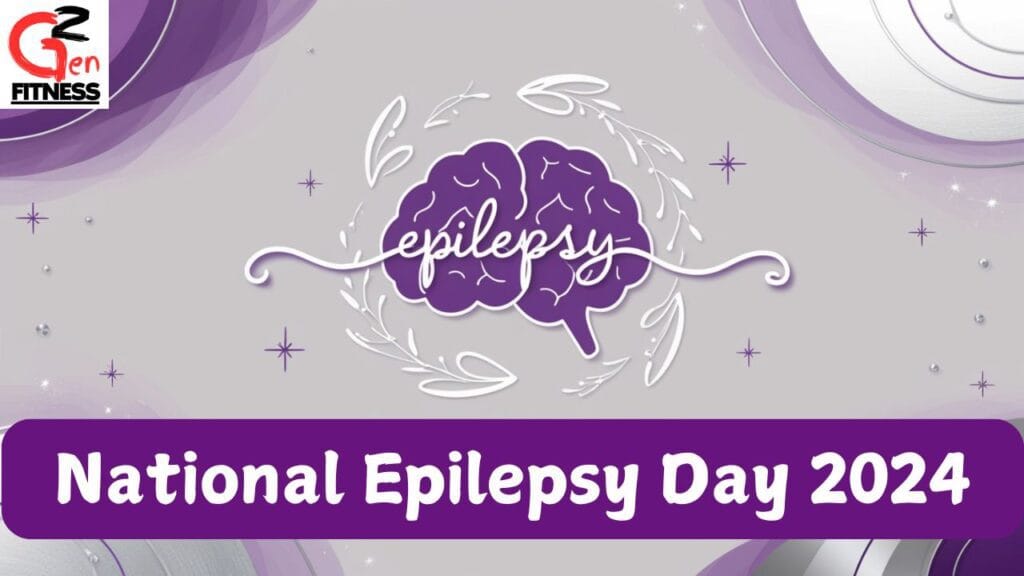

National Epilepsy Day 2024
National Epilepsy Day 2024, is an annual event dedicated to raising awareness about epilepsy, a neurological disorder affecting millions worldwide. The day aims to educate the public, combat the stigma associated with epilepsy, and encourage people to support those living with this condition. Observing this day is crucial in promoting understanding and inclusivity, ensuring that individuals with epilepsy can lead fulfilling lives.
What is National Epilepsy Day?
National Epilepsy Day is an observance designed to spotlight epilepsy’s impact on individuals and society. It encourages discussions about this often-misunderstood condition and promotes initiatives for early diagnosis, treatment, and patient support. Governments, healthcare organizations, and non-profits globally collaborate to mark this day with various campaigns and programs.
Date of National Epilepsy Day
National Epilepsy Day is observed on November 17th each year, with activities centered around increasing awareness and educating the public. While specific countries may have their own epilepsy awareness events, in India, this day is particularly significant, where it is marked by the Epilepsy Foundation of India with seminars, workshops, and community programs.
Theme of National Epilepsy Day 2024
The theme for National Epilepsy Day 2024 is “Share Your Purple Power”. The theme promotes the following key tenets to increase awareness for the epilepsy community: Belonging, Strength, Change, and Impact.
History of National Epilepsy Day
The history of National Epilepsy Day traces back to global movements for epilepsy awareness. Established by epilepsy support organizations, the day aims to fill the knowledge gap and address misconceptions. The World Health Organization (WHO) and other global entities have played a significant role in fostering initiatives to support epilepsy awareness.
Early Campaigns for Epilepsy Awareness
Advocacy for epilepsy began decades ago, focusing on dispelling myths and encouraging conversations about the disorder. These early campaigns laid the foundation for observances like National Epilepsy Day, emphasizing patient rights and public education.
The Role of Epilepsy Support Groups
Non-profit organizations and medical communities worldwide have been instrumental in organizing epilepsy awareness programs. Their persistent efforts have helped increase access to resources for patients and caregivers.
What is Epilepsy?
Epilepsy is a chronic brain disorder characterized by recurrent seizures caused by abnormal electrical activity in the brain. It affects people of all ages and can vary widely in its severity and impact.
Types of Epilepsy
- Focal Seizures: Limited to one area of the brain.
- Generalized Seizures: Involving both hemispheres of the brain.
- Unknown Onset Seizures: When the origin is unclear.
Causes and Symptoms
Common causes include genetic predisposition, brain injury, or infections. Symptoms range from momentary lapses in awareness to convulsions and loss of consciousness, depending on the type of epilepsy.
Significance of National Epilepsy Day
Raising awareness about epilepsy is essential to dispel myths, reduce stigma, and promote a better understanding of the disorder. National Epilepsy Day also highlights the importance of early diagnosis, as timely intervention can significantly improve the quality of life for individuals with epilepsy.
The Impact on Patients and Families
Epilepsy affects not only the patient but also their family. Emotional stress, financial burdens, and societal judgment can be overwhelming. National Epilepsy Day serves as a platform to connect families with resources and communities for support.
How National Epilepsy Day is Observed
National Epilepsy Day is marked by a variety of activities aimed at spreading awareness, educating the public, and supporting individuals with epilepsy. The day fosters community engagement and encourages active participation from individuals, schools, healthcare professionals, and policymakers.
Awareness Campaigns and Seminars
Healthcare organizations and non-profits organize seminars, workshops, and public talks to educate communities about epilepsy. These events provide a platform for sharing stories, addressing misconceptions, and discussing advances in medical research.
Medical Check-Up Camps and Community Programs
Free medical camps are often set up, offering consultations, diagnostic services, and information on managing epilepsy. These programs, especially in underprivileged areas, aim to identify undiagnosed cases and guide individuals toward appropriate care.
Role of Social Media in Spreading Awareness
Social media platforms are instrumental in amplifying the reach of awareness campaigns. Hashtags like #EpilepsyAwareness or #NationalEpilepsyDay trend on platforms like Twitter, Instagram, and Facebook, sparking discussions and reaching a global audience.
Involvement of Schools and Colleges
Educational institutions play a pivotal role in spreading epilepsy awareness. Schools and colleges often organize interactive sessions, skits, or competitions to engage students and teach them about epilepsy. Educating young minds helps create a more inclusive and understanding future generation.
Activities for Students
- Essay and poster-making competitions focused on epilepsy awareness.
- Discussions on the importance of empathy and inclusion.
- Sessions featuring medical professionals to explain the condition in simple terms.
Global Perspective on Epilepsy Awareness
Epilepsy awareness is not limited to National Epilepsy Day; similar initiatives exist worldwide. For instance, Purple Day, observed annually on March 26th, is an international effort to encourage people to share experiences and show solidarity with those living with epilepsy.
Role of International Organizations
Organizations like the WHO and the International League Against Epilepsy (ILAE) collaborate with governments to promote epilepsy care and awareness. They advocate for improved access to treatment, particularly in low-income regions where medical resources are scarce.
Steps Towards a Seizure-Free World
Efforts to achieve a seizure-free world involve a combination of medical advancements, public education, and support for patients. Scientists and researchers continually strive to develop better diagnostic tools, medications, and even surgical interventions.
Advances in Epilepsy Research and Treatment
Recent innovations include wearable devices that monitor seizure activity and provide alerts. Research into genetic therapies and brain stimulation techniques offers hope for individuals with drug-resistant epilepsy.
Lifestyle Changes and Preventive Measures
- Healthy Diet: Adopting diets like the ketogenic diet can reduce seizure frequency in some cases.
- Stress Management: Practices such as yoga and mindfulness can help manage triggers.
- Regular Sleep: Maintaining a consistent sleep schedule is crucial for minimizing seizure risk.
How You Can Help
National Epilepsy Day offers an opportunity for everyone to contribute toward epilepsy awareness and support.
Supporting Epilepsy Patients and Caregivers
Simple gestures, like showing empathy and offering a helping hand, can make a significant difference. Encouraging words and understanding attitudes help combat the isolation many epilepsy patients face.
Donating to Epilepsy Research and Non-Profits
Many organizations depend on donations to fund research, provide medical aid, and support families. Contributing financially, even in small amounts, can aid these initiatives.
Volunteering for Awareness Campaigns
Volunteers are essential for organizing events, distributing informational material, and spreading the word. Getting involved in local epilepsy awareness programs can amplify the message of inclusivity and understanding.
FAQs
What is the main purpose of National Epilepsy Day?
The day aims to spread awareness about epilepsy, educate the public, and support patients and their families by combating stigma and promoting early treatment.
Why is epilepsy awareness important?
Awareness helps reduce the stigma associated with the condition, encourages timely diagnosis, and ensures access to better healthcare for patients.
What activities are common on National Epilepsy Day?
Activities include awareness campaigns, medical camps, social media initiatives, and educational programs in schools and communities.
How can I help someone with epilepsy?
You can help by being informed, offering emotional support, and advocating for inclusivity in schools, workplaces, and public spaces.
Are there global observances similar to National Epilepsy Day?
Yes, events like Purple Day (March 26th) and World Epilepsy Day (second Monday in February) are observed internationally to promote epilepsy awareness.
Conclusion
National Epilepsy Day is a powerful reminder of the importance of understanding and supporting those affected by epilepsy. By spreading awareness, educating communities, and fostering inclusivity, we can work toward a world where no one feels isolated or misunderstood because of their condition. Together, we can make a meaningful difference—one step at a time.
Read our latest articles- https://genzfitness.in/
Read our latest book- https://eatyourproblems.store/





